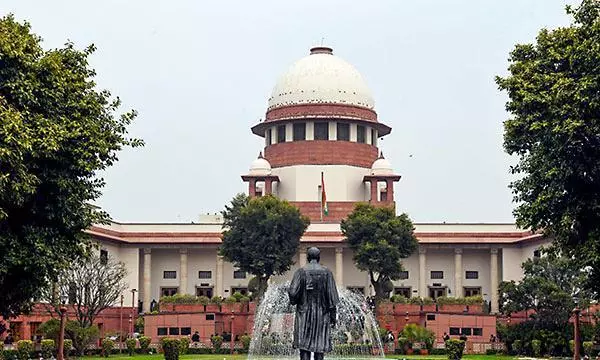
Governor can't examine a bill's legislative competence: Bengal govt to SC
During Presidential reference hearing, Bengal govt argues that only courts can test a bill's constitutionality and governor can't act as a 'super legislature'

The West Bengal government on Wednesday (September 3) informed the Supreme Court that a governor does not have the authority to examine the legislative competence of a bill passed by a state assembly.
A five-judge Constitution bench led by Chief Justice BR Gavai was told by senior advocate Kapil Sibal, representing West Bengal, that since Independence, there have been very few instances where the President withheld assent to a bill passed by the Parliament, as such laws reflect the will of the people.
Also Read: Presidential reference | Setting fixed timelines for Bill assent poses challenges: SC
Governor's power questioned
Presenting arguments before the bench, which also comprised Justices Surya Kant, Vikram Nath, PS Narasimha, and AS Chandurkar, on the seventh day of hearing in the Presidential reference case on whether the court could impose timelines for governors and President to deal with bills passed by state assemblies, Sibal said questions of legislative competence must be decided by courts, not governors.
"A legislation can be challenged in a court of law by citizens or by somebody else. It's in the rarest and rare case that a governor says 'I cannot give assent to the bills' and withhold it," Sibal argued, stressing that Parliament is sovereign and that the will of the people must be implemented without delay.
Governor is not a 'postman'
Chief Justice Gavai asked Sibal whether a governor could not reserve a bill for the President’s consideration if it appeared to be repugnant to central legislation. Sibal replied that while such cases may arise occasionally, once a bill is passed by the legislature, it carries a presumption of constitutionality, which only courts can test.
Justice Kant observed that a governor must still apply his mind to determine whether a bill is repugnant, noting that he cannot act as a mere postman or as a "super legislature", and that his role involves some scrutiny.
Sibal countered that the sovereignty of state legislatures is as important as that of Parliament, and that governors should not be permitted to delay implementation of laws. "The Constitution has to be interpreted in such a way that it is workable. This court has to ensure that there is no area of discord. So the key word here was as soon as possible. There is an element of immediacy… it is the will of the people."
The hearing remains underway.
Also Read: Who holds ultimate authority? Bengal Guv to move SC over control of state universities
SC reaffirms judicial review
On Tuesday (September 2), the court reiterated that judicial review is part of the basic structure of the Constitution, and courts cannot avoid deciding constitutional questions even if they have political implications.
However, it clarified that it would only interpret constitutional provisions while dealing with the Presidential reference on whether timelines can be imposed on governors and the President for acting on bills passed by state assemblies.
Earlier, on August 26, the bench asked whether the court must remain powerless if a governor delays assent to bills indefinitely and if the constitutional functionary's independent power to withhold a bill would mean that even money bills could be blocked.
Also Read: TN Governor doing 'cheaper politics' than Opposition: CM Stalin
Article 143 (1) invoked
The questions came in response to arguments from some BJP-ruled states, which defended the autonomy of governors and the President, contending that assent to laws cannot be compelled by judicial order.
Several states also argued that the judiciary “cannot be a pill for every disease”.
The reference stems from President Droupadi Murmu’s request in May under Article 143(1), seeking the Supreme Court’s opinion on whether judicial orders could impose timelines on the President when exercising discretion over bills passed by state assemblies.
(With agency inputs)

